Stalking Behavior: Treatment Methods and Forensic Mental Health's Role
VerifiedAdded on 2023/01/03
|13
|632
|95
Presentation
AI Summary
This presentation delves into the multifaceted issue of stalking behavior, exploring its treatment and the pivotal role of forensic mental health in the process. It begins by acknowledging the complexities of human psychology and how various factors can lead to changes in behavior, setting the stage for understanding stalking. The presentation defines stalking as a pattern of harassment and intrusion, which can manifest physically or digitally, and the resulting feelings of fear and threat experienced by victims. It then outlines various treatment methods, including education, psychotherapy, and cognitive therapy, emphasizing the importance of addressing the victim's emotional state through medication and therapeutic interventions. Furthermore, the presentation highlights that while stalking is a behavioral issue rather than a mental disorder, it is closely linked to mental health, and thus, forensic mental health professionals are essential in treating stalking behavior. Forensic mental health is defined as the intersection of psychiatry and law, with professionals analyzing the background of criminal behavior, including stalking, to develop effective treatment strategies. The presentation concludes by summarizing the different types of stalking and the various treatment options available, emphasizing the importance of forensic mental health assessment and intervention.
1 out of 13
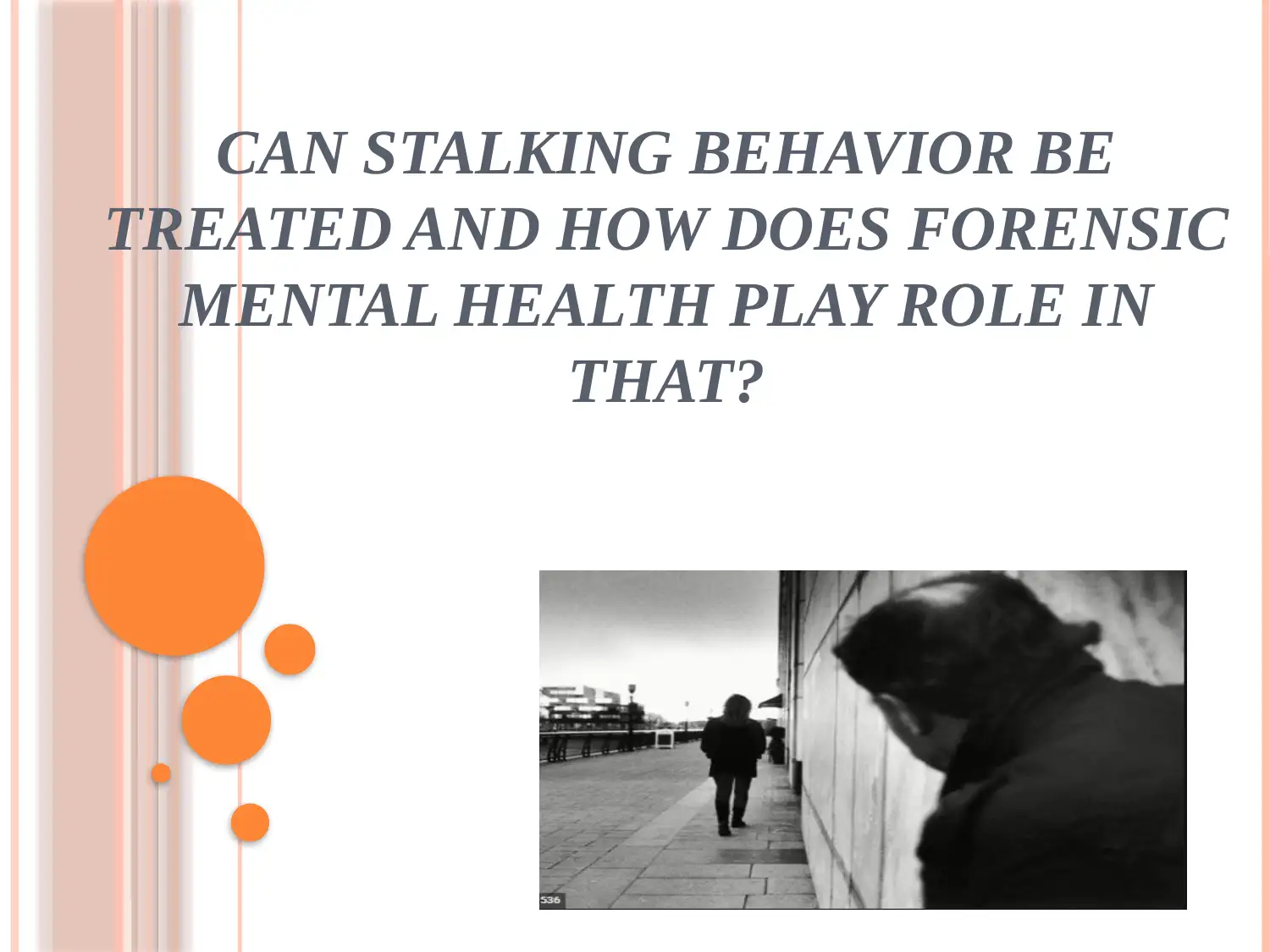
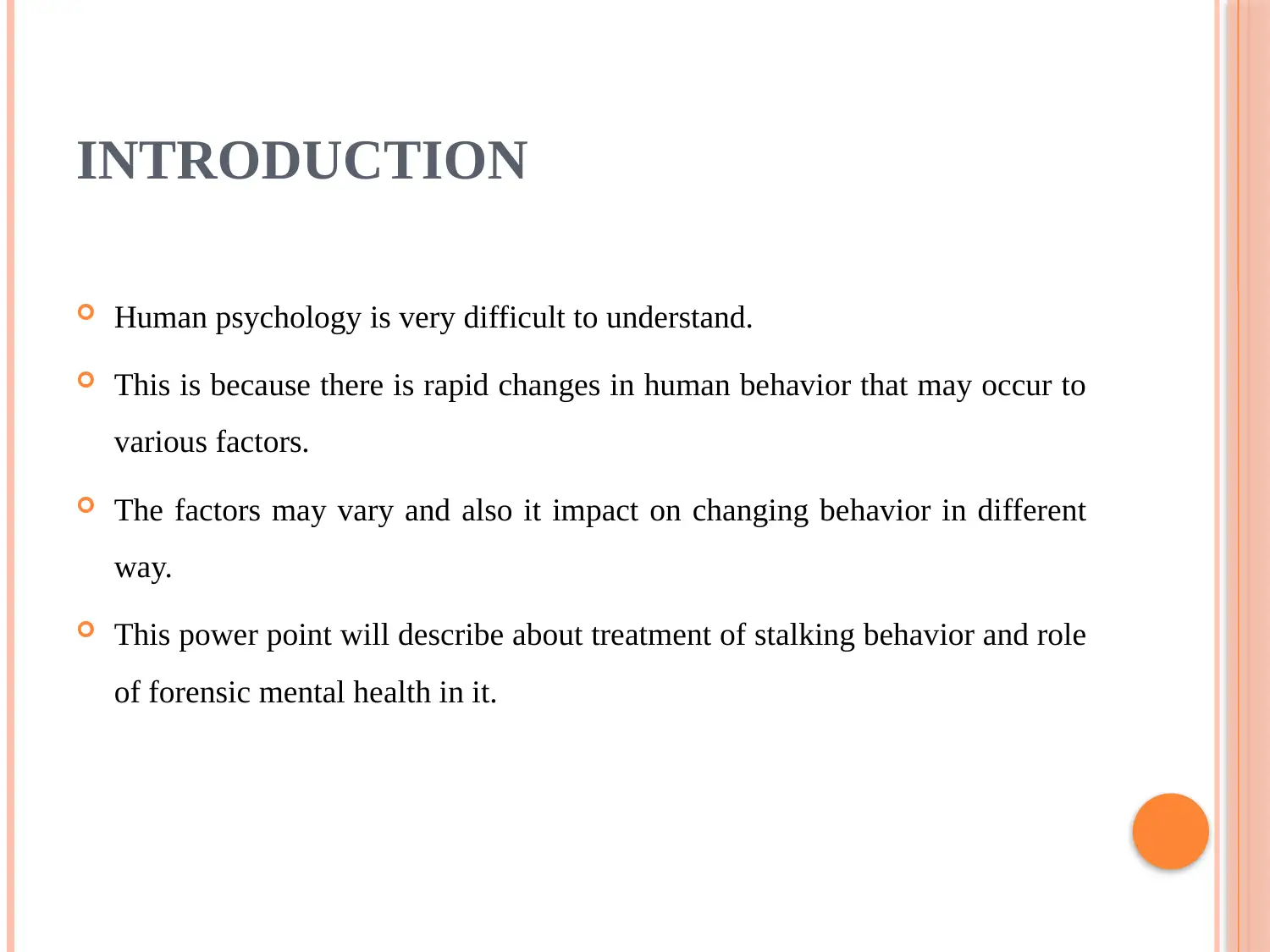
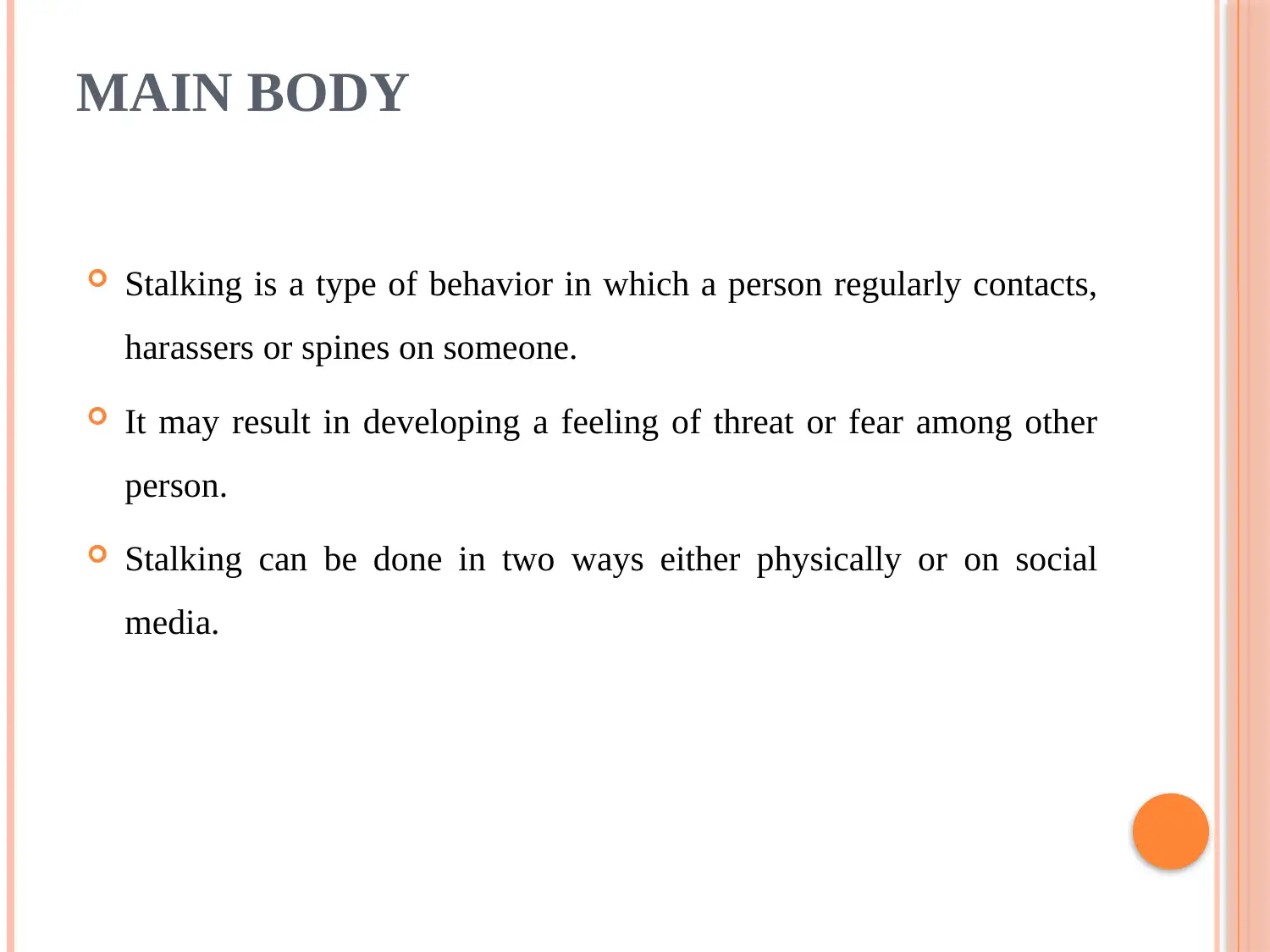

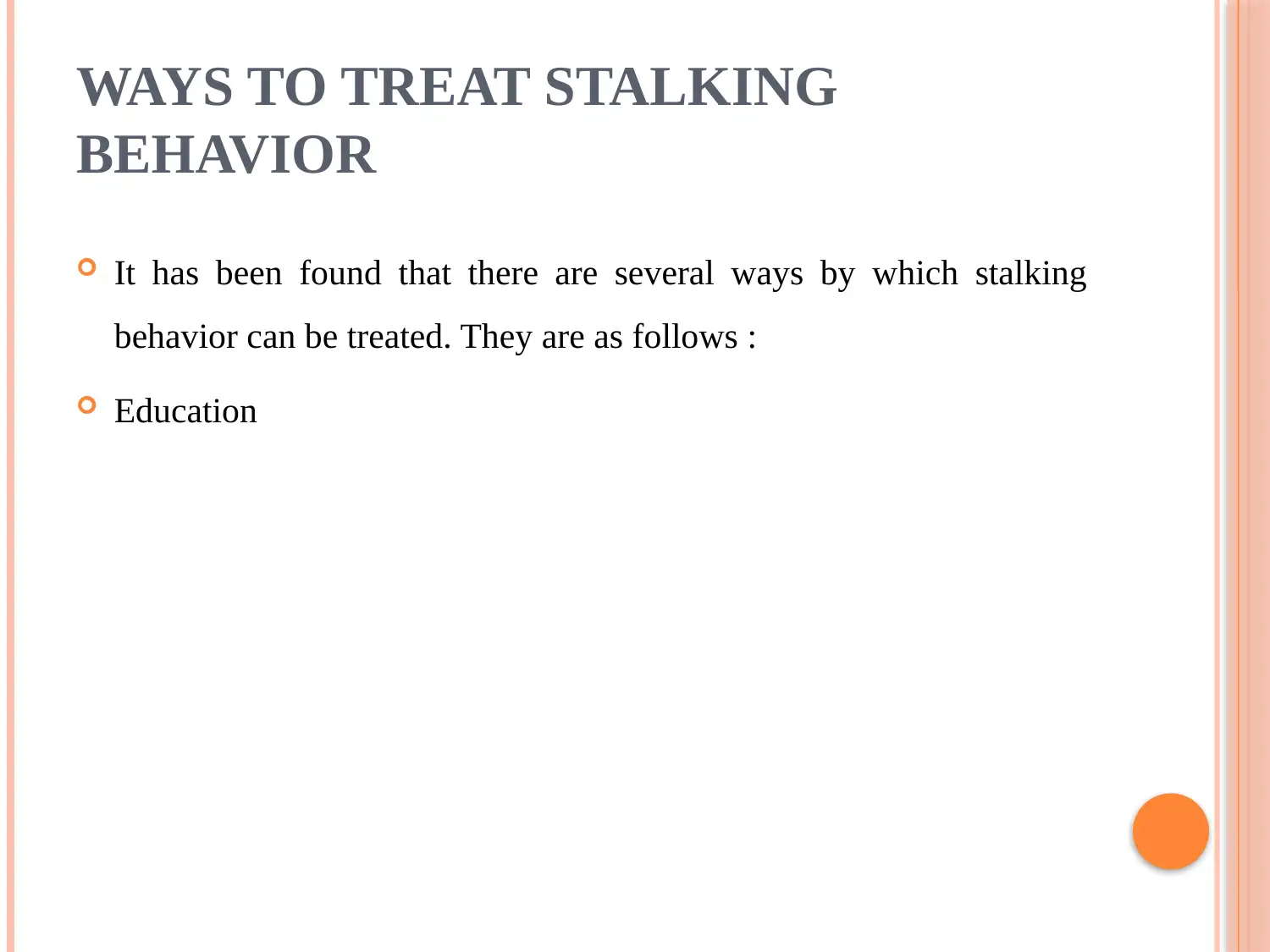
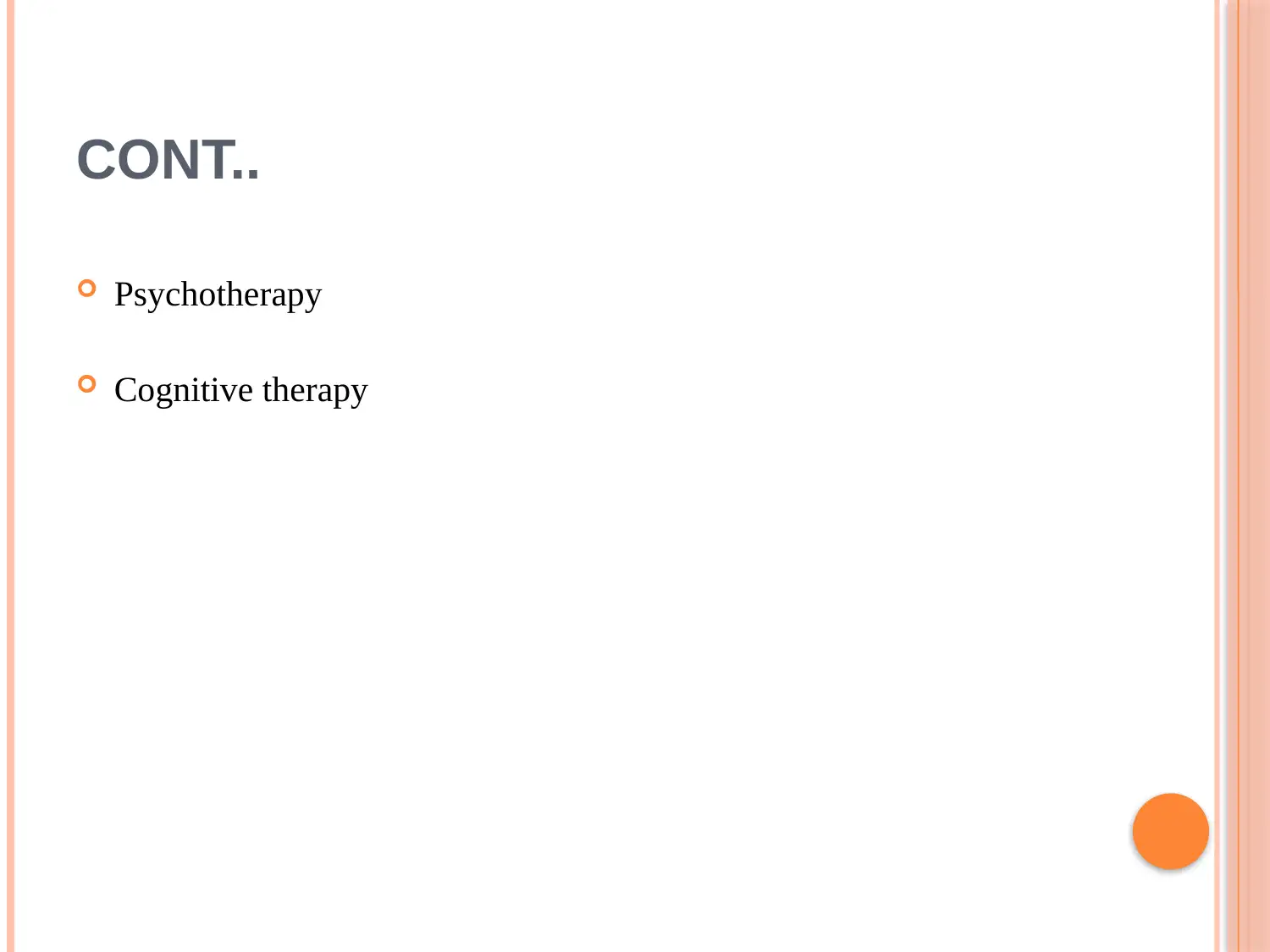
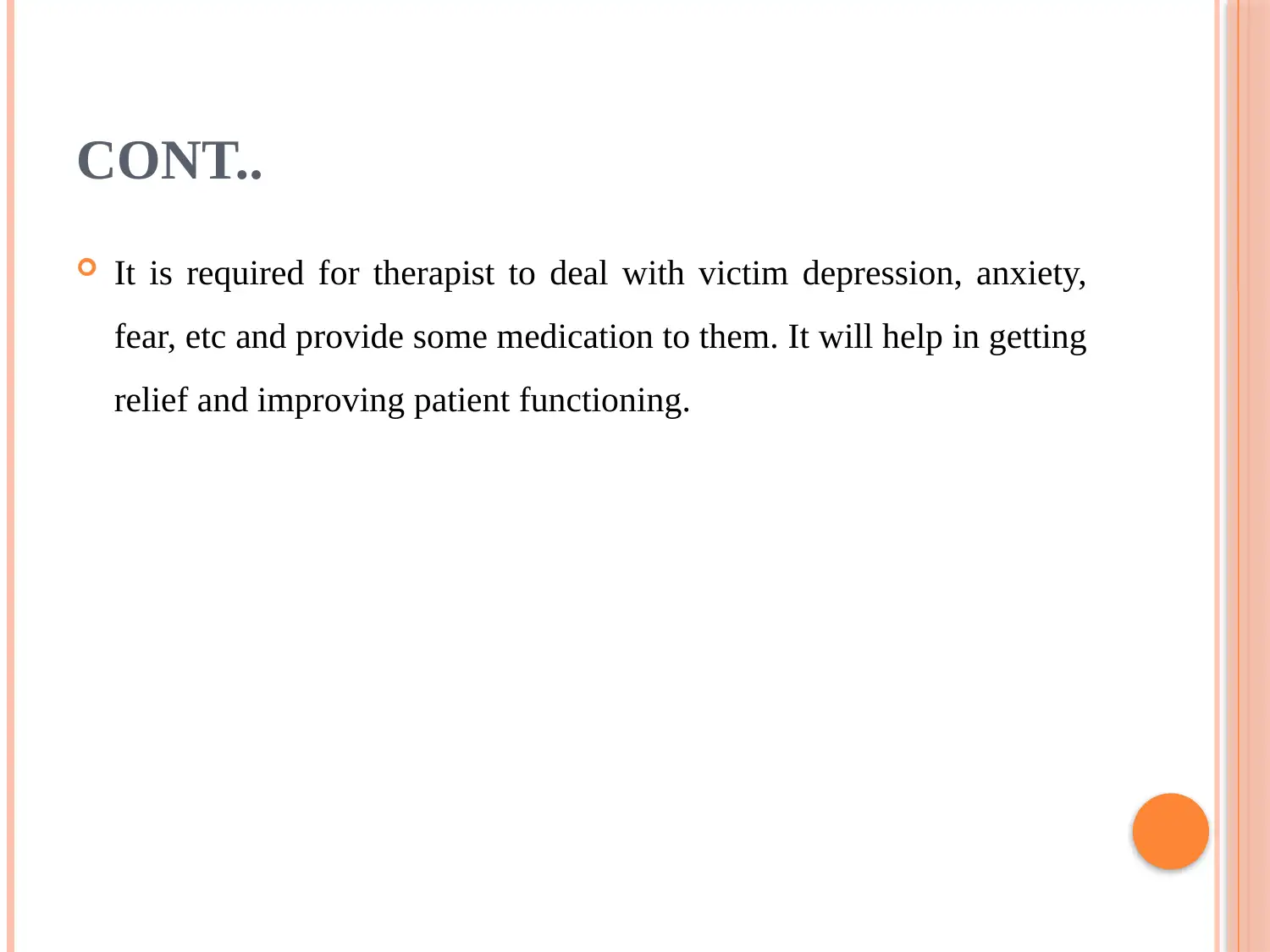
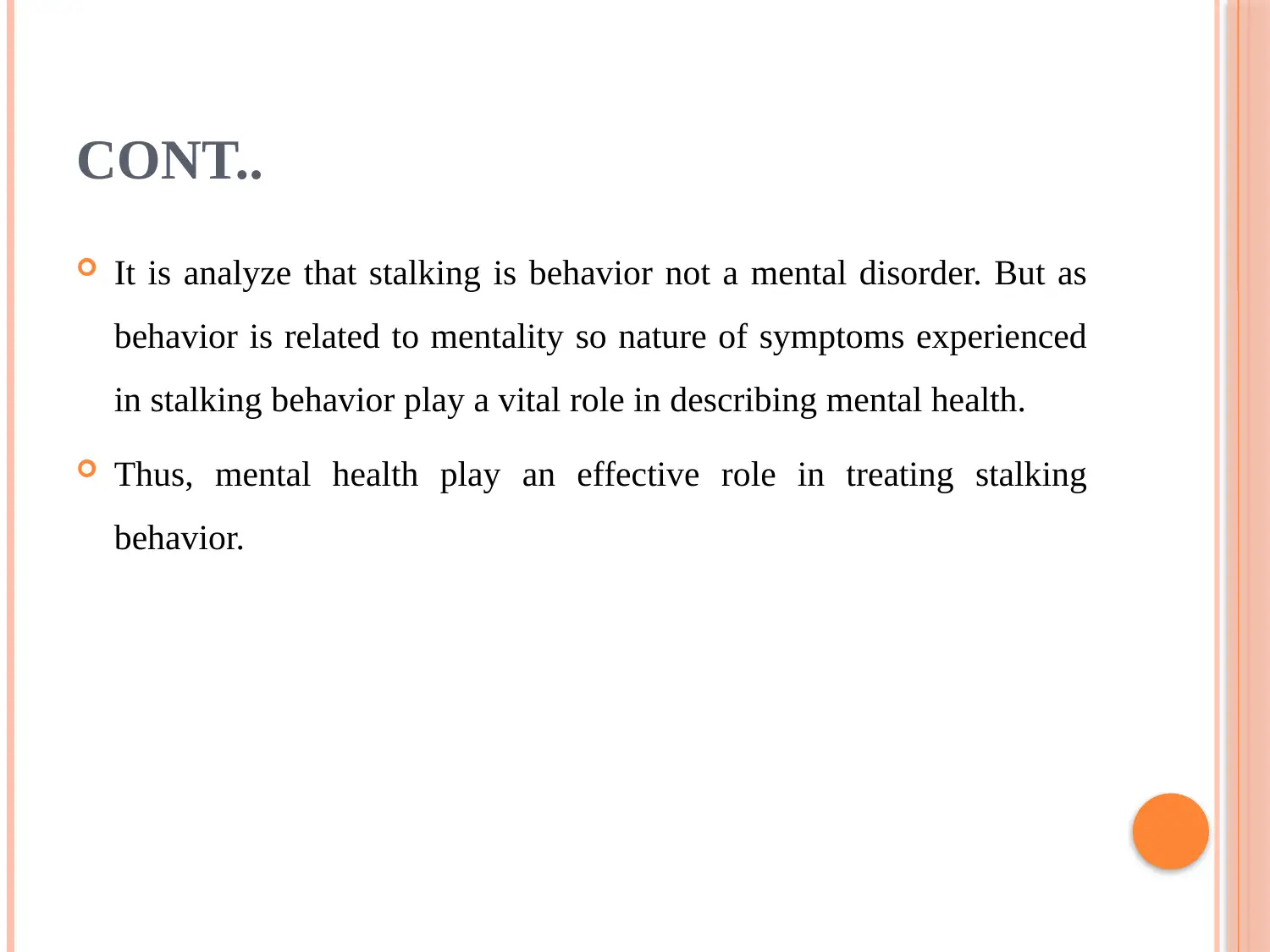
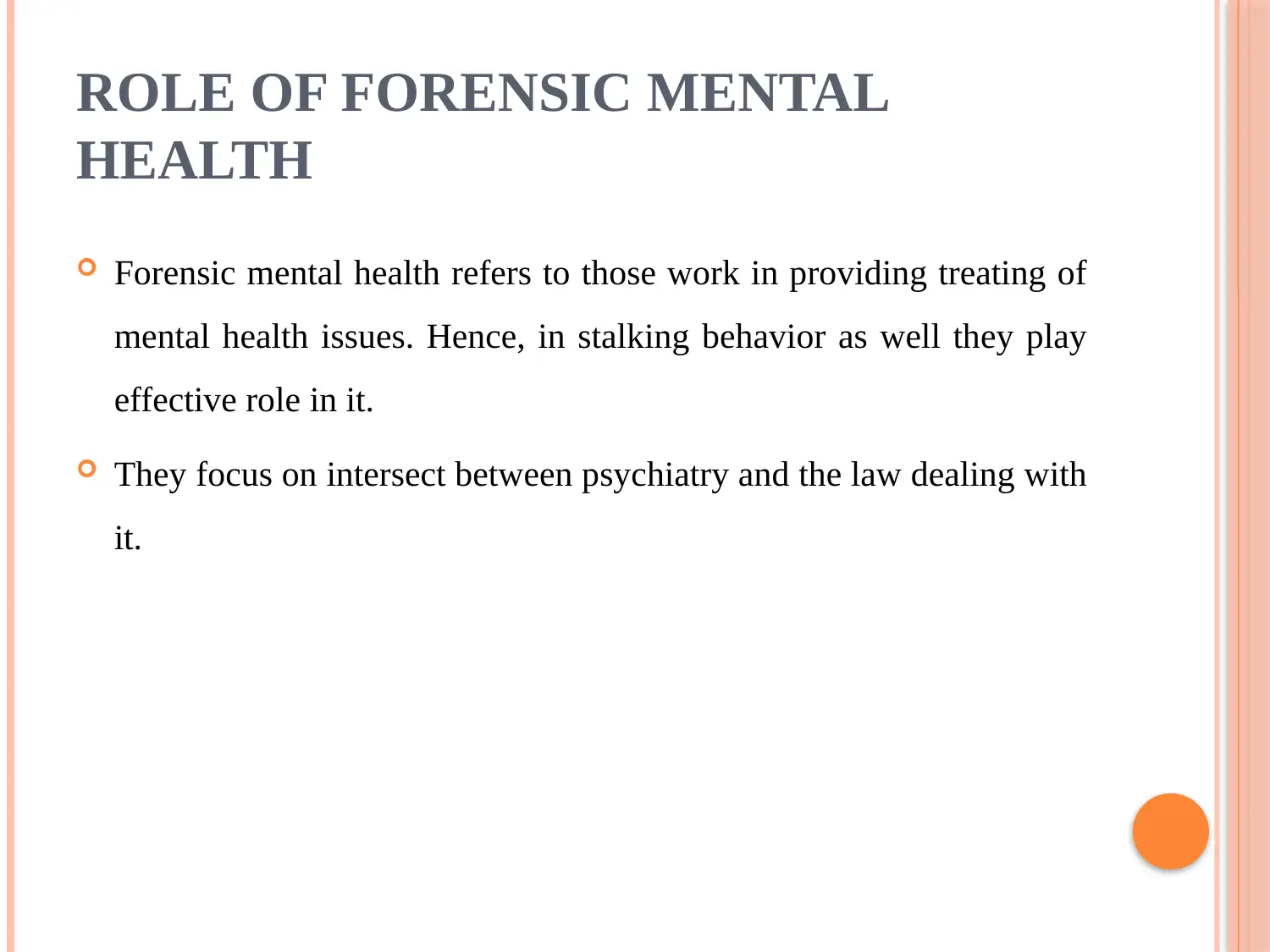
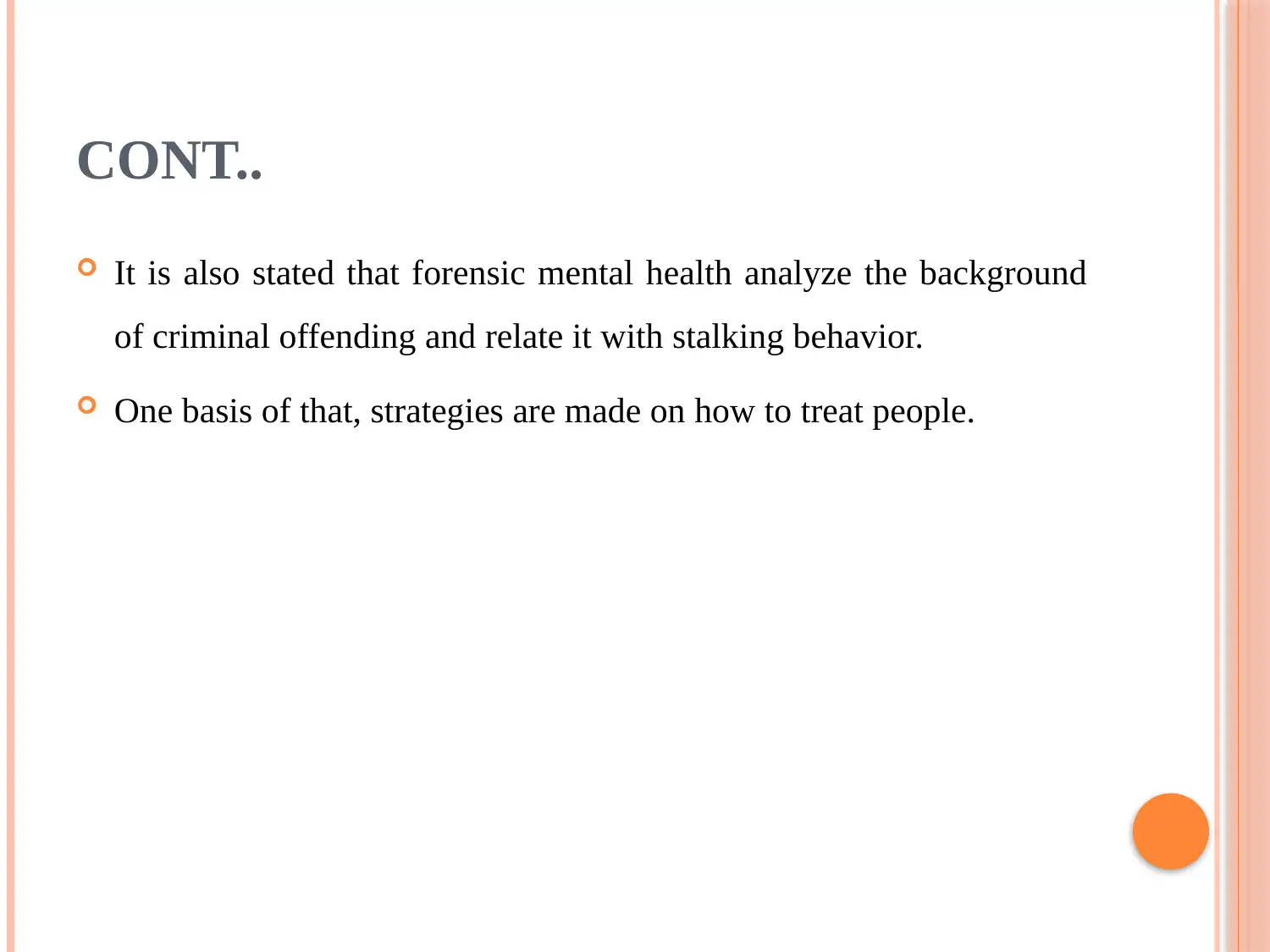
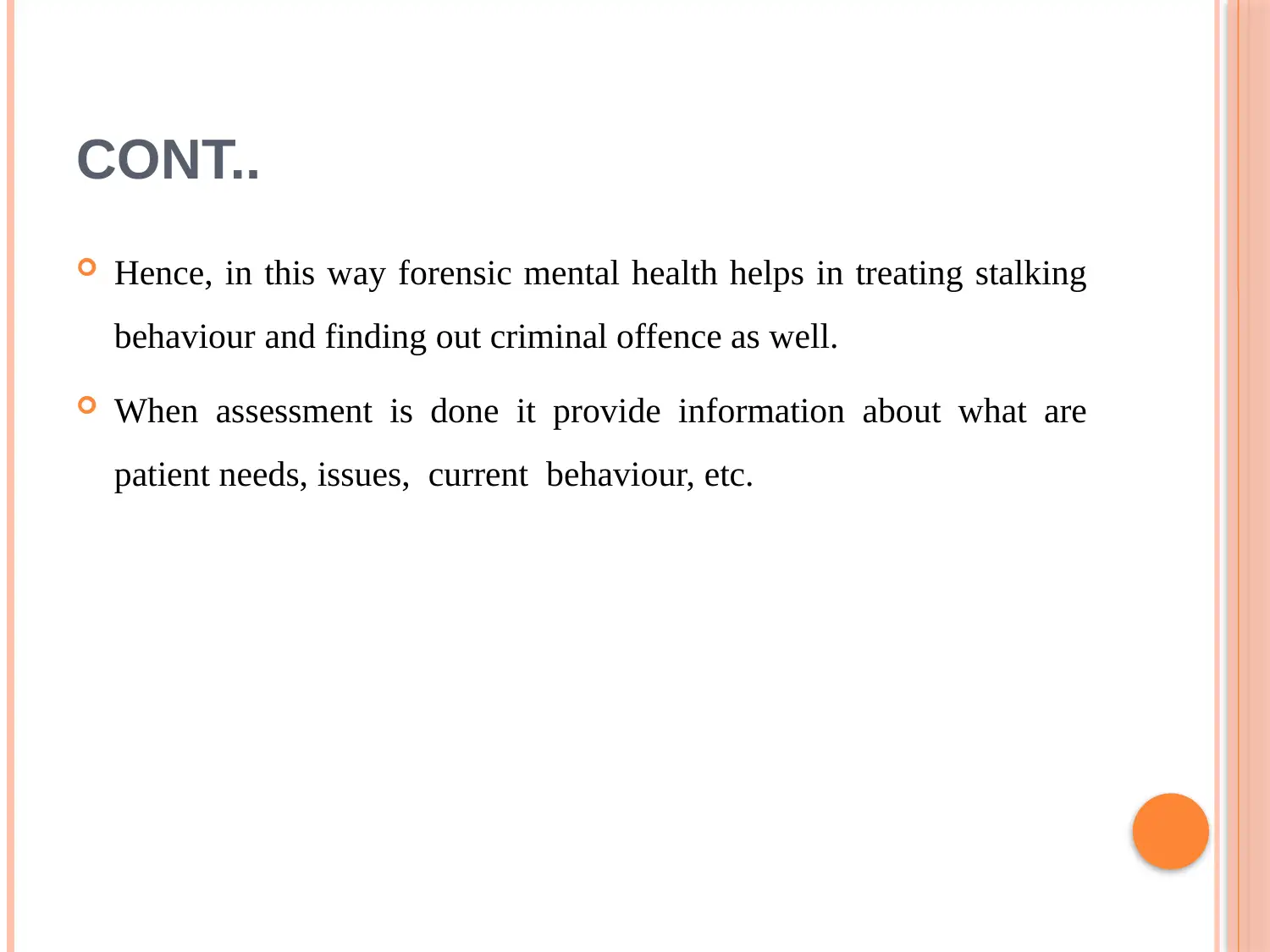
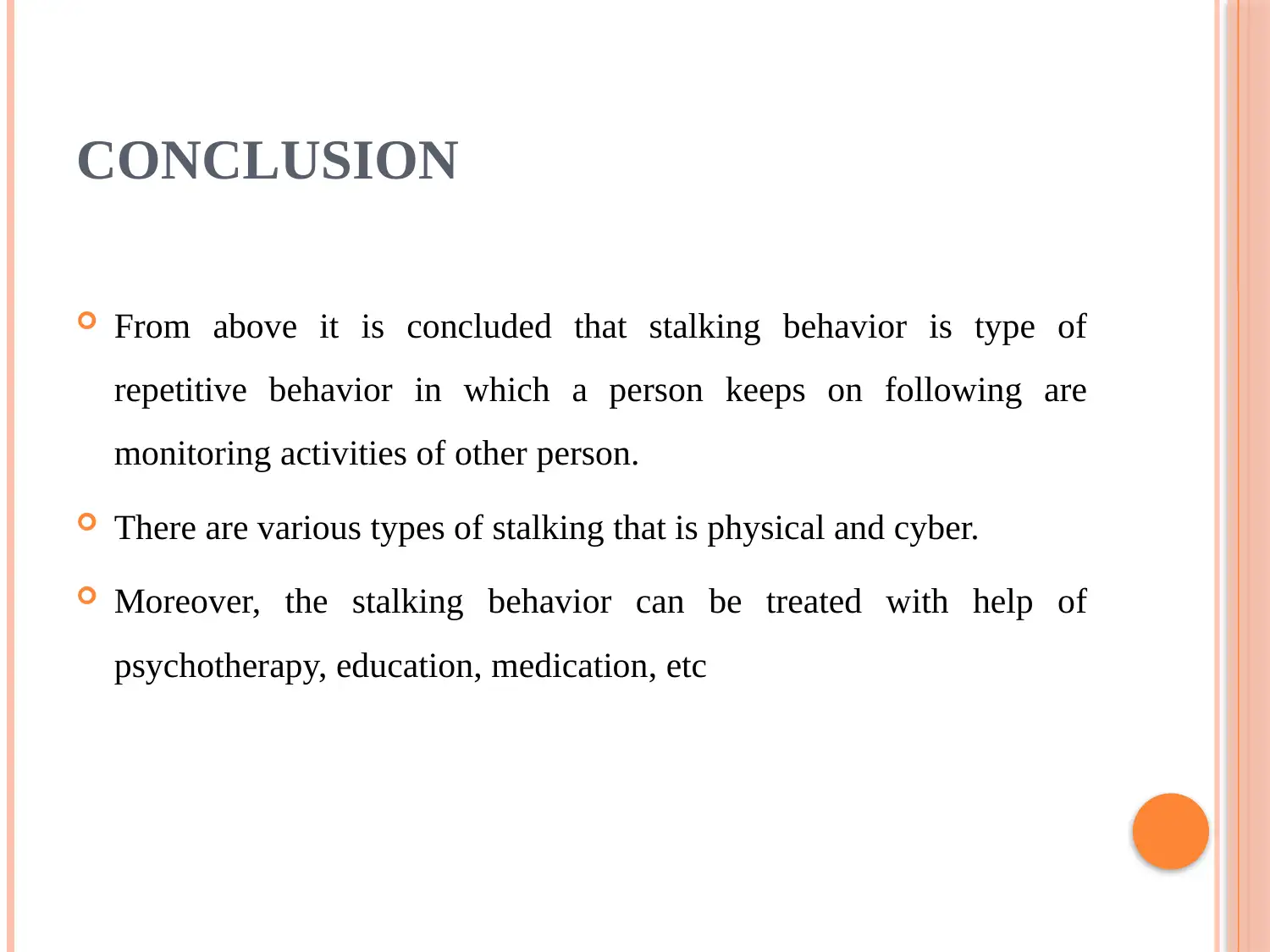
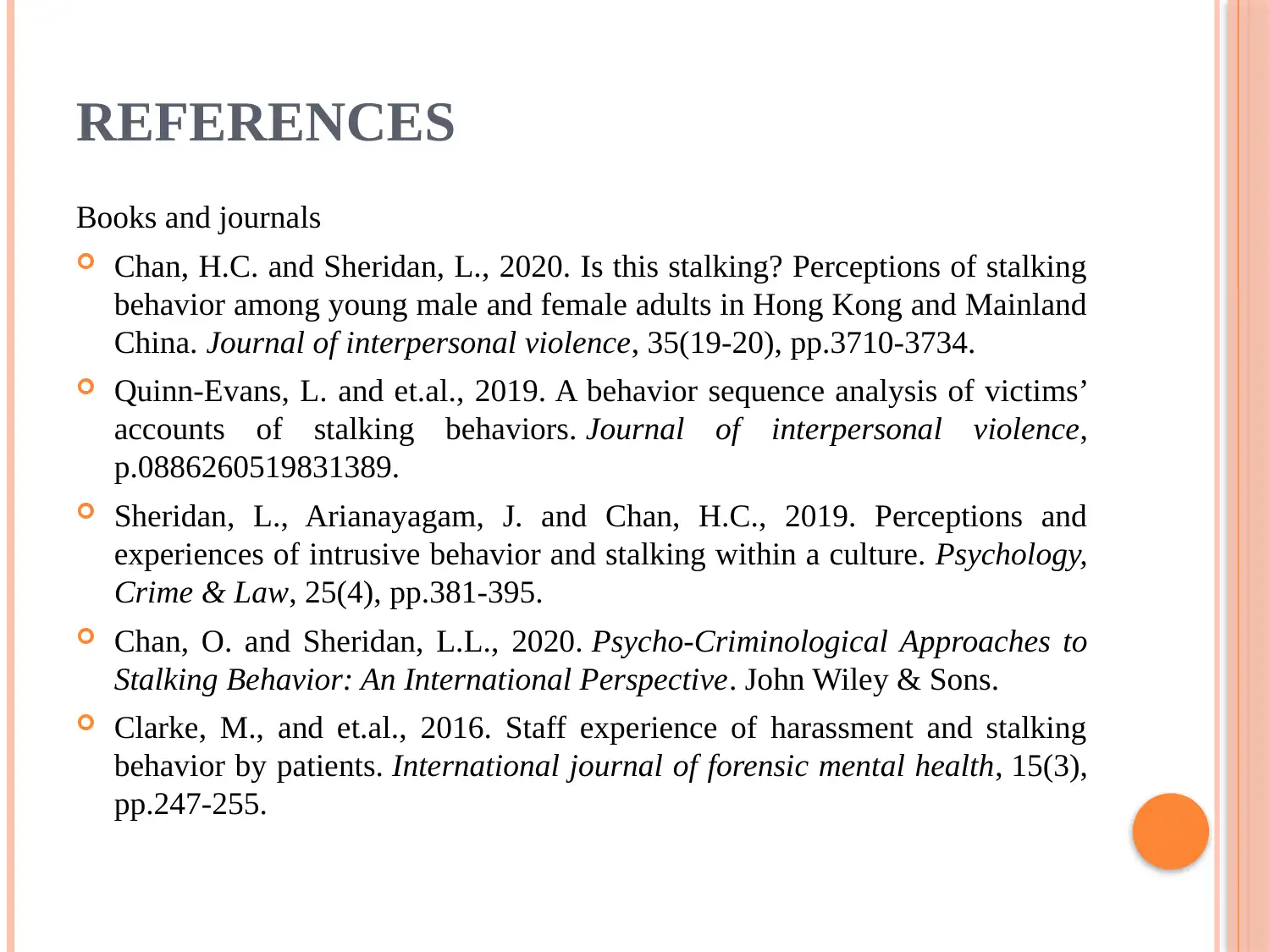
![[object Object]](/_next/static/media/star-bottom.7253800d.svg)